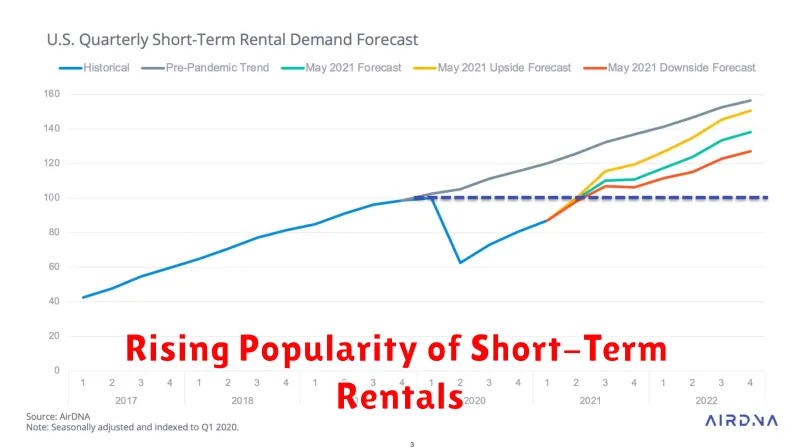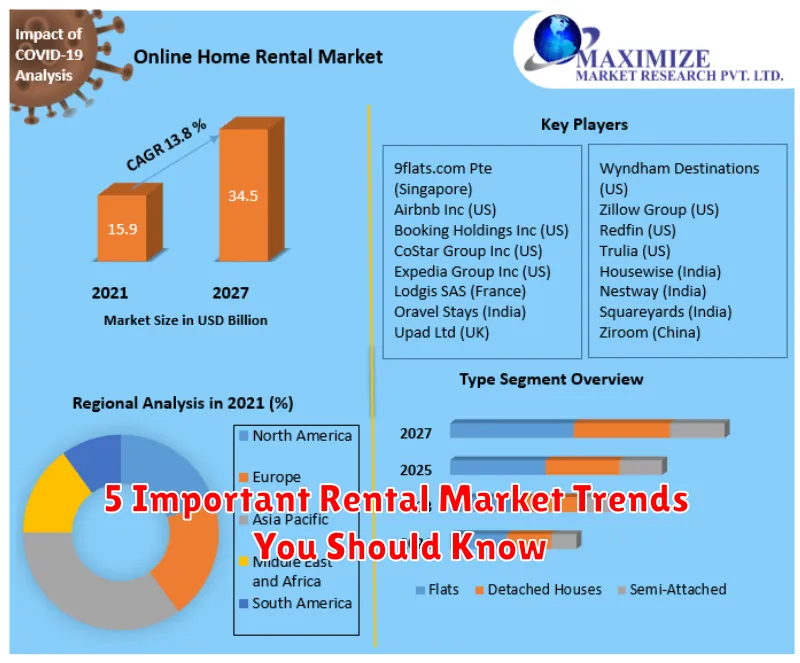Staying informed about the latest rental market trends is crucial for both landlords and tenants. The rental market is constantly evolving, influenced by a variety of factors such as economic conditions, interest rates, and population shifts. Understanding these trends can help landlords make informed decisions about pricing and property management, while empowering tenants to navigate the market effectively and secure the best possible rental agreements. This article will explore five important rental market trends that you should be aware of in today’s dynamic landscape.
Whether you are a seasoned investor, a first-time landlord, or a prospective tenant searching for your next home, knowing the current rental market trends is essential. From increasing rental rates to shifting demographics and emerging technologies impacting the rental market, staying ahead of the curve is more important than ever. This knowledge will equip you to make strategic decisions, whether you are setting rental prices, searching for the perfect property, or negotiating lease terms. Read on to discover five key rental market trends that will significantly influence your experience in the rental market.
Rising Popularity of Short-Term Rentals

The short-term rental market has experienced a surge in popularity in recent years. This trend is driven by several factors, including the rise of platforms like Airbnb and Vrbo, which make it easier for property owners to list and manage their properties for short-term stays.
This type of rental offers flexibility for both travelers and property owners. Travelers appreciate the ability to choose accommodations that cater to their specific needs, whether it’s a cozy apartment in the city center or a spacious beachfront home. Property owners can generate higher rental income compared to traditional long-term leases.
The increased demand for short-term rentals also presents unique challenges for the real estate market, such as regulatory concerns, impacts on housing affordability, and competition with traditional hotels.
Increased Demand for Pet-Friendly Rentals
The demand for pet-friendly rentals has seen a significant rise. More and more renters are pet owners, creating a competitive market for properties that accommodate animals.
This increased demand puts landlords in a stronger position. They may be able to charge higher rents or be more selective with tenants for pet-friendly units.
For renters with pets, it is crucial to begin their search early and be prepared to meet potentially stricter requirements, such as higher pet deposits or pet interviews.
Impact of Remote Work on Rental Preferences
The rise of remote work has significantly impacted renter preferences. Location is no longer tied to proximity to an office, allowing renters to prioritize other factors. This has led to increased demand in suburban areas and smaller cities offering a lower cost of living and a higher quality of life.
Renters are also seeking properties with features that support a work-from-home lifestyle. Dedicated office space, reliable internet connectivity, and larger living areas are now highly desirable. These features are becoming key differentiators in a competitive rental market.
Technology Integration in Rental Management
Technology is reshaping the rental market, offering streamlined solutions for both landlords and tenants. Property management software helps automate tasks such as rent collection, maintenance requests, and tenant communication.
Digital platforms provide easy access to rental listings, virtual tours, and online applications. This simplifies the search process for tenants and expands the reach for landlords.
Smart home technology is also becoming increasingly prevalent in rental properties, allowing for remote control of appliances, security systems, and energy usage. This adds convenience and potential cost savings for renters while providing landlords with valuable data and control.
Sustainability and Eco-Friendly Rentals
Renters are increasingly prioritizing sustainability. This trend reflects a broader societal shift towards eco-conscious living. Demand is growing for rentals with energy-efficient appliances, water-saving fixtures, and renewable energy sources.
Landlords and property managers are responding by incorporating green features into their properties. This includes upgrades like installing solar panels, improving insulation, and offering recycling programs. These improvements not only attract environmentally conscious tenants but also contribute to lower operating costs in the long run.

